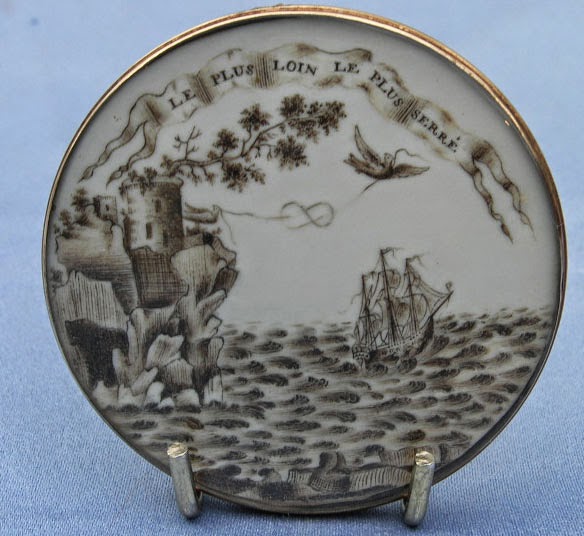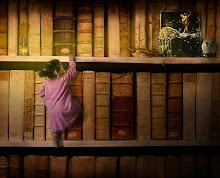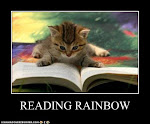An article reposting
a blog by a local (Pittsburgh) teacher, about engaging with his students about Michael Brown, Ferguson, the grand jury's spectacular failure. Teacher is white, class is largely "minority."
"One boy asked me, “Why does this keep happening, Mr. Singer?”
It was the question of which I had been most afraid. As a teacher, it’s always uncomfortable to admit the limits of your knowledge. But I tried to be completely honest with him.
“I really don’t know,” I said. “But let’s not forget that question. It’s a really good one.”"
THIS makes me really, really angry. It's nice that this teacher acknowledged michael brown, and ferguson, even if he did write a self-congratulatory post about it. But if you don't even try to answer the question of WHY this keeps happening, you haven't done anything except emote. Which is not necessarily a bad thing, and has its place. But emotion alone doesn't get shit done. It doesn't change anything. The answer to WHY - which is, in a nutshell, centuries of institutionalized racism! - is not comfortable, because it makes every white person complicit. And dodging the answer to "Why" is itself a kind of complicitness. At the very least, it's white privilege of a kind I
discussed here.
Because we are. We benefit, every single day, from the oppressions of non-white people in this country. We have since before America was independent. We benefit from the historic oppression - slave labor contributed enormously to the economic development of the US, for starters. We benefit from years of Black people being denied the right to vote (because who gets elected? white people, who make laws and appoint people that serve white people's interests, because they are either outright racist, or are blind to the needs of Black/nonwhite people). All the weird-ass housing laws that kept Black people from owning homes in certain neighborhoods. All the jobs Black people weren't allowed to hold. All the underfunded, subpar schools Black children attended, segregated. It all adds up over time.
Like I said a week ago, I'm really sick of the term "white privilege." I think it obscures what's really happening - because things like being able to walk through a store unaccosted by security guards, like buying a toy gun without being shot and killed, like seeing people who look, talk, and act like you on tv and in books - those things aren't really
privileges. They are HOW EVERYONE SHOULD LIVE.
Privilege means you have more than the norm. you are +1. Privilege is that guy with the gold-plated toilet seat or whatever it was.
Privilege is having the manager greet you at the door, escort you through the store, jump you to the head of the line.
One of the reasons stupid white people get all sniffy about "white privilege" (like this
jackass from Princeton) is because they don't see themselves as HAVING privileges. And many of them don't, to be honest. They have what all people should have, which is the ability to move through and in the world and be viewed as a fully human, fully normal, member of society. They don't have excessive riches, or important connections, or country club memberships, or summer homes on Martha's Vineyard, or whatever else marks the wealthy elite. A lot of white people
have had to work hard, very hard, to get where and what they have. But the thing they - we - don't see or feel is that even in a life full of hardship, we are still benefiting from the color of our skins. And we are benefiting
at the expense of very real, very human, non-white people. We always have been.
Thinking of enjoying basic human rights as a form of privilege is a kind of red herring, I think. Rights, by definition, aren't privileges. And yes, when they are distributed or applied to only one segment, then that segment becomes "privileged" over others - but I still don't think privilege is the right word.
White privilege makes it - of course it does - all about us, white people, again. It's about what we have. It's about
our stories.
What we need is a term that shows what effect our stories have on non-white people. We need a term that makes us not privileged, but
culpable. We need terms that reveal the effects and stories of Black people without victimizing them all over again - so not calling them victims, or the oppressed, or disadvantaged (though those terms apply).
I don't know what the word is. Or phrase. It isn't that we as white people are committing crimes - though some of us are, murdering police of this country I am looking right at you - against Black people. It isn't even that we need to be made to feel guilty (though we
should feel some kind of guilt). We need to be made to see
and feel that we are doing and benefiting from something very, very wrong, that was set in place before any of us were born, that we've grown up in, that we are a part of whether we think we are or not.
The only word I can think of that describes the effect white privilege has on non-white people is
outrage. I know "outrage" has other connotations, specifically rape, that is problematic. But "outraged" seems accurate, more or less, based on the blogs and posts and tweets and articles I've been reading. Weary, and outraged.
I want a term that shows how our privilege comes at the expense of other people. I want a term that doesn't make it seem like we have something special, just by having basic human rights; I want a term that shows how those basic human rights are denied, again and again and again, to Black people. But I want that term to carry culpability. I want a term the makes really, really clear that the white world isn't the only world, and that it has been constructed, continues to be carried out, in ways that intentionally and otherwise hurt non-white people.
I don't know how to articulate this properly, except to say I don't want the kind of privilege that means black kids can be shot dead for almost literally no reason at all. That I don't want to think of being able to walk across campus unharassed as a privilege - because it's a right. Civil
rights movement, you know? But we need a word or phrase that makes explicit not what we're getting, as white people, but what we are
denying to nonwhite people. What our society has been denying to nonwhite people.
Because what we've been doing, all these years, is NOT LISTENING. We have not been listening to the stories of Black people and Latino people and Asian people and Native people. We think we have been, but we've been doing that thing where you listen with half your attention, and cherry-pick words and ideas. And we're picking all the wrong words and ideas. We think we know what's up, and we don't. We really, really don't. In my last post, I mentioned a few examples of things I have learned, in the last 18 months or so, from some Black acquaintances and friends. Every new revelation was like a ton of bricks for me - I didn't
know! and But that's insane/terrible! and - this is the big one!!! - I've never thought about that before.
We need a word that takes our attention off our own enjoyment of basic rights, and focuses it on the things we've never thought about before. And the way - or
a way - we do that is by getting out of our own, earnest, do-gooding way and let Black people speak for themselves. To themselves, and to us. Tell their stories, loudly, often, everywhere. If we're so dense as to need it spelled out, they can include an Aesop-like "and the moral of this story is" at the end of their anecdote about showing IDs, being stopped for driving while black, being followed around stores, being called names, being insulted, being the only one in the room who isn't white, and on and on.
There are
lots of stories. So many stories. We know some names right now - Michael Brown, Trayvon Martin, Tamir Rice - but for each of those boys (and they are boys, 'young men' is stretching it, a distinction I'm sure they would hate if they were alive to hear me make it) --- for each of those boys, there are dozens and hundreds and thousands of people, men, women, old, young, dead for centuries now, or only born since the millennium, who have story after story after story to tell. White people are not the heroes of any of those stories.
But there are
so many stories, and we've been allowed, we have allowed ourselves, to ignore them for far too long. We've been allowed to, have allowed ourselves, to make a mess, then close the door on the room the mess is in - because out of sight, out of mind.
We need to mind. We need to be made to mind. I don't know what that will take, but I think it will have to be very loud and very big and very disruptive. It's the only way, I think, that white privilege will start to disappear as a thing of the present, and become a thing of the past, before we started listening -really listening - to other people's stories. Before we learned how we were hurting people, even when we didn't mean to, even when we didn't know we were doing it.
Because we're hurting people. We're hurting a lot of people, and we're killing some of them. And that should not be anyone's privilege.












